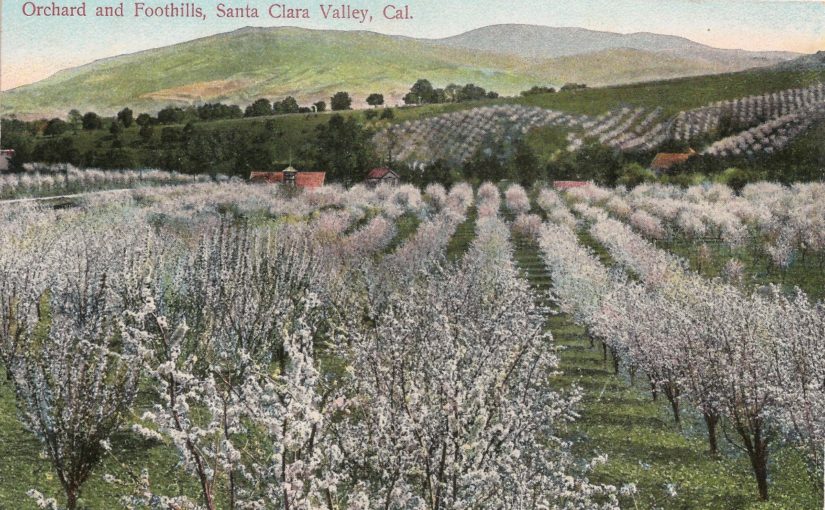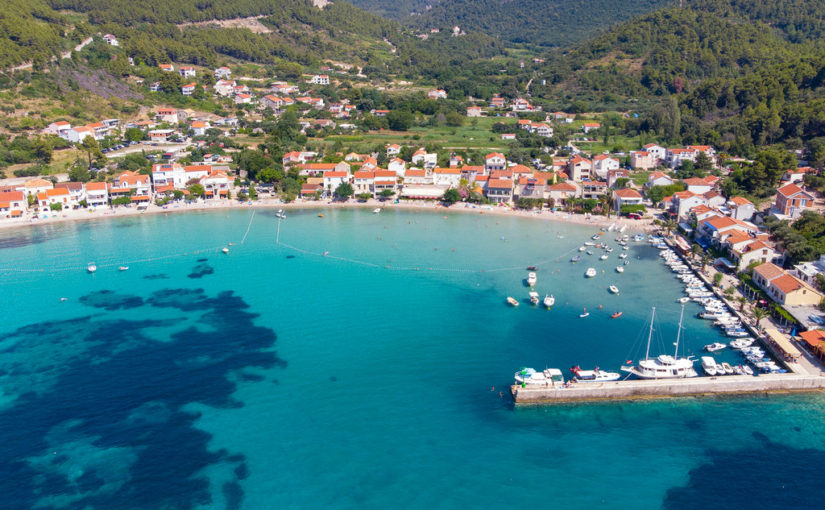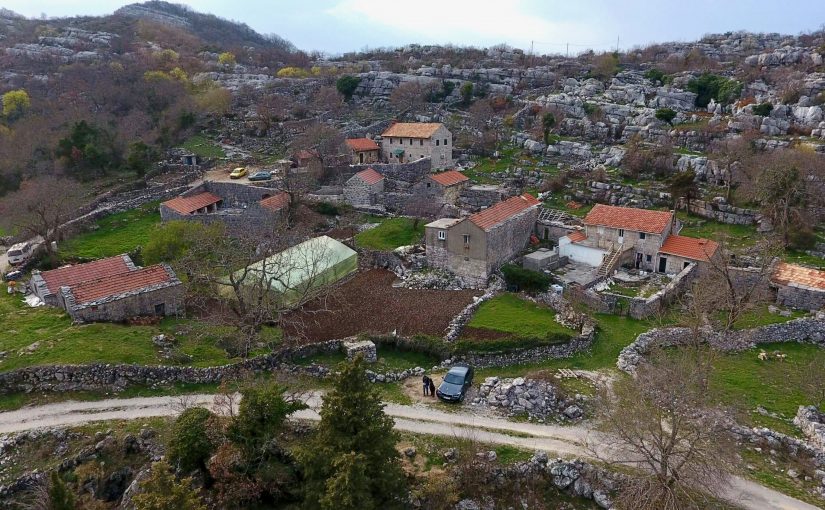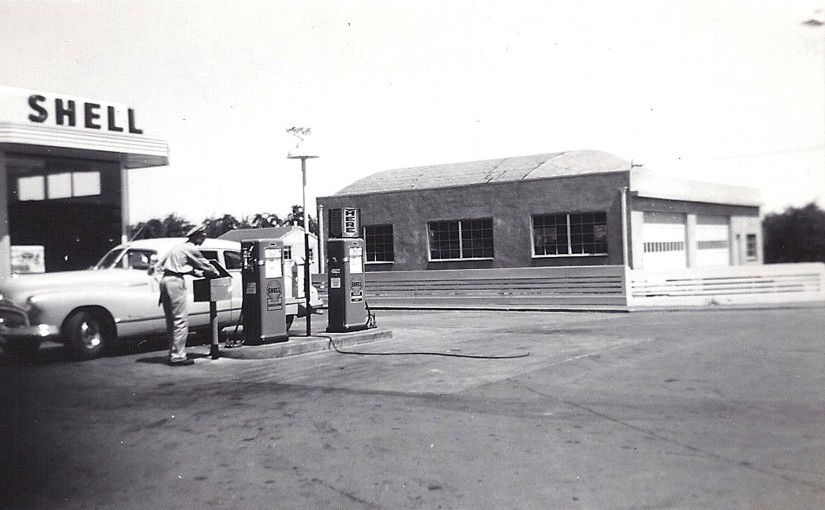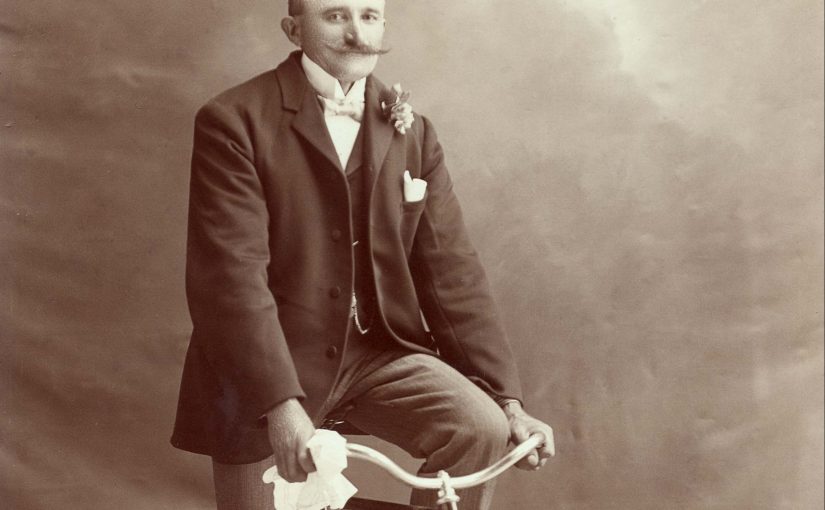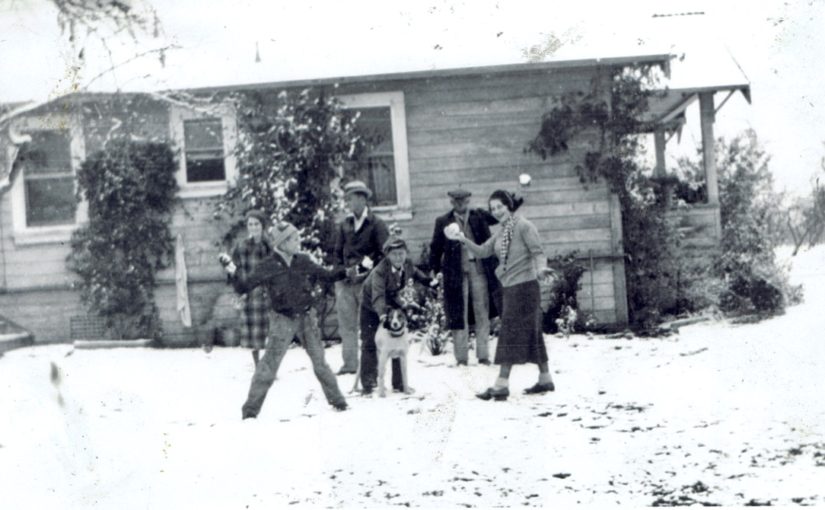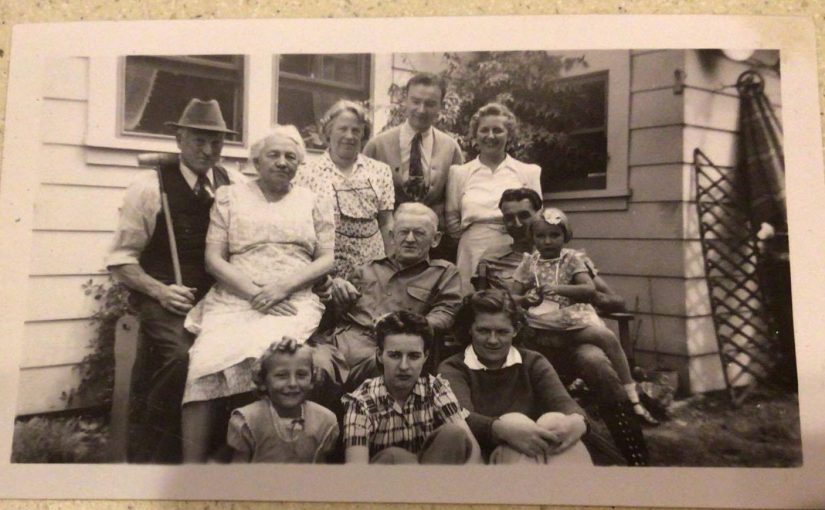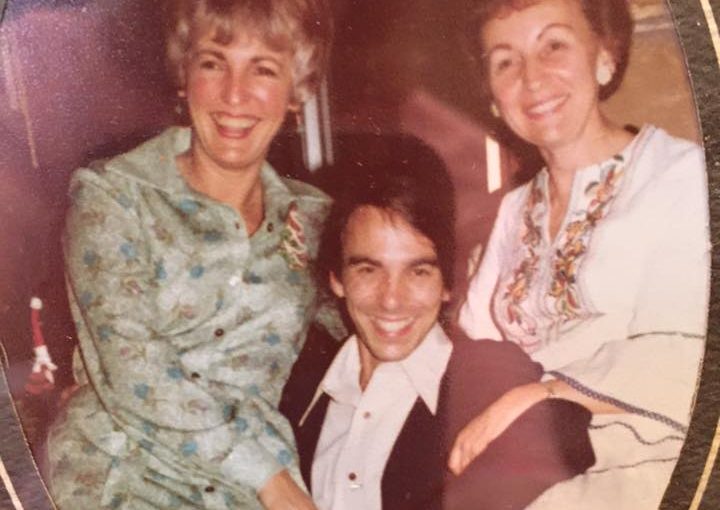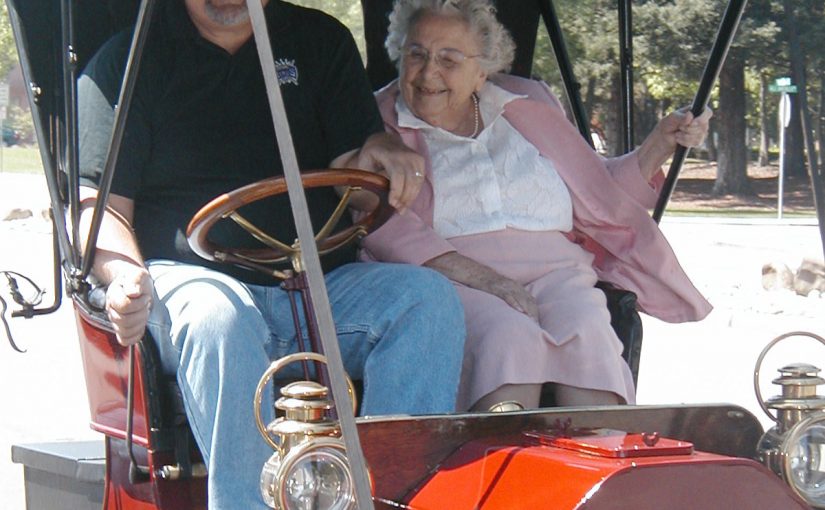After holiday dinners (and Sundays of any kind qualified as holidays) I would wait until Aunt Mary was comfortable on the well-worn couch upon which Grandma Lopin gazed from her photographic portrait, chrysanthemum on her head, and beg for a story. Aunt Mary told the best stories around. One sentence into one of her stories, I was enthralled.
“I just say whatever comes into my head,” she laughed. “They’re not real stories.”
But they were to me. And on occasion of my having child guests for the afternoon, if I could wrangle a story from my melodious aunt, my friends agreed; her stories were transportive.
Then one Sunday after a bit more effort than I thought should have been necessary, I convinced Aunt Mary to begin one of her improvisations. And I was bored. She just said whatever came into her head. What was so special about that?
Thus ended a childhood enchantment.
Was it something to do with the ranch? The orchard of broken spells?
One of my best friends as a child was a boy of about my age named David John Pace. For both of us, our friendship brought our middle names to the fore; when we were with parents, it was the only way anyone could specify who was being yelled at.
David and I loved to play stories. One of us would begin with a setting or a character or a circumstance, and between us we’d make a movie – fabulous special effects, cast of thousands, heroic protagonists, a plot that twisted itself into knots. We could go for hours this way, and the Ranch offered endless location shots – barn, chicken coup, rows of trees, and clothesline became aircraft hanger, crocodiles in a swamp, enemy lines on a battlefield, and telecommunications HQ.
The miracle of childhood.
As with many rural houses in warm climates, my grandmother had her regular kitchen with windows and doors, and her summer kitchen on a screened-in porch. Adjacent to the summer kitchen was a concrete slab that was home to a six-lane clothesline. As far as clotheslines go, it was a deluxe model. The slab was surrounded by oleander bushes, and beyond those, rows and rows of fruit trees.
“Jack MacMillan calling Bronco, do you read me Bronco?”
“Roger Jack, read you loud and clear.”
“Get the enemy in your cross hairs, Bronco, we’re going in for a dive.”
Silence.
“We’re in an electric substation that we’re going to blow up so the enemy is without power while we booby trap the presidential palace.”
“We’re in a plane about to riddle the enemy coast guard with shrapnel.”
“Where’d you get that?”
“It’s a fight to the end!”
“Okay, hand to hand!”
And we switched narration to take us into the orchard on a dramatic chase scene, ending back at the clothesline. Dueling heroes, each intent on saving civilization, destroyed themselves on a concrete slab, both narrating the action like would-be Howard Cosells. But each narrating a different action.
It felt weird. Like we were trying to sustain something that was over. We ratcheted up the drama, rose the stakes to dizzying heights, but we were aware of the gears and springs that usually kept us in motion. And they weren’t meshing. The magic we never even knew was a part of our play was gone. Not ones to accept defeat or progress, we held onto the drama, but in our hearts we knew that this was the last childhood story we would weave that actually captivated us. We were growing up.
Or were we just becoming self conscious?
The cardinal rule of improvisation, I was later to learn in college (Dad: We sent you to college to learn what?) is Yes And. Yes, I accept the reality you just depicted, And I add this to it. When two kids start arguing about basic plot, the game is in trouble. When it happens twice in a row, there is no game. When the argument becomes the game, there are no kids left to play it.
Last I checked (and it has been many years) David John took over his father’s wholesale business. Our paths last crossed when he visited to advise on my upcoming first journey to Europe, having himself recently returned. Or maybe it was when we found ourselves both in Santa Cruz, and did a little beaching while taking other kinds of trips.
So, I don’t know how his sense of fantasy fared when confronted with wholesale. But I have a feeling that awful dawning outside my grandmother’s summer kitchen only increased my resolve to keep the game going in some way. My subsequent personal struggle involved lots of enthusiasm for invented possible realities, and a strong need to involve friends in getting them to sign on to my fantasies.
Eventually, I found semi-acceptable social structures (theatre and its offshoots) in which to plant my love of improvised narrative, and although forming theatre companies could be viewed as a brand of hucksterism, in the main the theatre arts channelled my need to improvise in directions useful to the community. And for all the things in life that I missed because of my singular dedication to the stage, I got a nice handful of ephemeral magic in return. And developed a huge admiration for those who have managed to keep the improv rolling along while raising kids and doing business. That, to me, is real growing up.
Photo: The orchards of Santa Clara Valley during a long ago spring.
